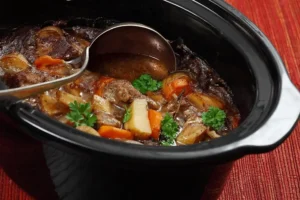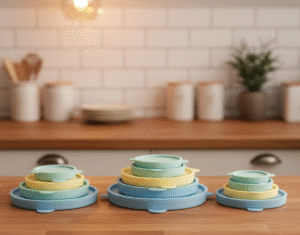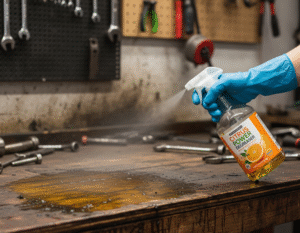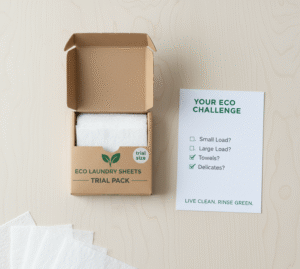The Hidden Crisis: What Happens to Your Vegetable Waste After the Trash?
You toss your vegetable scraps in the bin like it’s no big deal. But here’s the harsh truth: your kitchen waste doesn’t just vanish. It piles up in landfills, rotting and releasing methane, a gas far worse than carbon dioxide for the planet. Shockingly, almost one-third of all food produced globally goes to waste, and vegetables make up a huge chunk of this. Read more from the EPA’s methane emissions report.
Imagine your carrots, potato peels, and wilted lettuce ending up in a landfill somewhere, causing damage invisible to the naked eye but catastrophic to our climate. It’s easy to ignore, right? But what if every peel, every scrap, was a lost chance to do something valuable for your home, your community, even your wallet? This is why repurposed vegetable waste isn’t just a trend, it’s a necessity.

Why Simply Throwing Away Vegetable Waste Is No Longer an Option
Think tossing vegetable waste into the trash is harmless? Think again. When vegetable scraps decompose in landfills without oxygen, they produce methane, a greenhouse gas 25 times more potent than carbon dioxide. And as cities grow, so does this problem.
Waste management costs are skyrocketing, and many places are tightening rules on organic waste disposal. The old out of sight, out of mind attitude won’t cut it anymore. Plus, throwing away vegetable waste means losing rich organic matter that could nourish your garden, reduce your garbage bills, or even fuel renewable energy projects. See why composting rather than landfilling organic waste is a climate-smart move.

What Can We Do With Vegetable Waste? Exploring Simple Repurposing Ideas
Alright, so you’re wondering: what can we do with vegetable waste that actually works? Glad you asked.
First, start small. Vegetable scraps like onion skins, carrot tops, and celery leaves aren’t garbage; they’re cooking gold. Boil them to make a delicious, nutrient-packed broth that’s better than any store-bought version. No more wasting money or flavor!
But don’t stop there. Did you know you can use vegetable peels to create natural cleaning products? Citrus peels in vinegar can become a powerful, chemical-free cleaner. That wilted parsley? Chop it finely and mix it into compost or your salad dressing.
Repurposing vegetable waste turns your kitchen scraps into treasure, not trash.
Step-by-Step Guide: How to Repurpose Food Waste Into Valuable Resources at Home
Here’s the magic. Repurposing food waste is easier than you think. Follow this quick guide:
Composting Basics
Set up a small compost bin in your kitchen or backyard. Toss in vegetable scraps, coffee grounds, and eggshells. Over weeks, this turns into nutrient-rich soil you can use for plants or your garden. Learn more about home composting tips and methods.
Make Vegetable Broth
Collect your peelings and ends in a freezer bag. Once full, boil them with herbs for a rich broth that boosts flavor and nutrition in soups and stews.
Natural Fertilizers
Blend your scraps with water to make a liquid fertilizer. It’s a cheap and organic way to feed houseplants.
Keep Vegetables Fresh Longer
Store leafy greens in a damp cloth or an airtight container. Avoid tossing perfectly good veggies too early, and reduce waste before it starts.
With just a few habits, you can turn what seemed like useless scraps into resources that save money and help the planet.

Beyond Home: How Vegetable Waste Recycling Can Benefit Communities and Businesses
Repurposing vegetable waste isn’t just a solo act; it’s a community game‑changer.
On a larger scale, vegetable waste recycling reduces landfill pressure and lowers carbon footprints. Some businesses transform vegetable scraps into biofuels, animal feed, or even bioplastics, cutting waste and creating new products. Cities that promote organic waste collection see big improvements in sustainability and local agriculture.
If local governments and companies invest more in vegetable waste recycling programs, imagine the ripple effect: cleaner cities, healthier soil, and economic growth from turning waste into wealth.
The Personal and Financial Benefits of Repurposing Vegetable Waste You Didn’t Know
Now, let’s get real. You might wonder, “What’s in it for me?”
Repurposed vegetable waste can slash your grocery bills. Making broths, compost, and fertilizers at home means spending less on store-bought versions. It also cuts down how much trash you throw out, potentially lowering waste disposal fees.
Plus, every time you recycle vegetable waste, you’re punching a small but mighty ticket to fight climate change. That’s a win for your conscience, your community, and your future.
The Biggest Mistakes People Make with Vegetable Waste and How to Avoid Them
Here’s the ugly truth. Many people still think vegetable scraps are just garbage. That mindset is costing us dearly.
Mistake #1: Throwing everything in the trash without sorting. This ruins compost quality and wastes potential.
Mistake #2: Letting vegetable waste rot indoors without composting or repurposing. Hello, bad smells and pests.
Mistake #3: Giving up because it seems complicated or time-consuming.
The fix? Start simple. Keep a dedicated container for scraps, learn one new repurposing trick a week, and remember, imperfect progress beats perfect inaction every time.
Take Action Today: Simple Habits to Turn Your Vegetable Waste Into a Resource
Ready to jump in? Here are easy habits anyone can adopt:
- Collect vegetable scraps in a jar or container daily.
- Freeze scraps for broth or compost later.
- Set up a small compost bin or use a local composting service.
- Share your new skills with friends or neighbors, build a community of repurposers.
Don’t wait for some perfect green moment. Start messy, start small, start now. Each peel you save is a tiny revolution.

Quick FAQ on Vegetable Waste Repurposing
Q: Can all vegetable scraps be repurposed?
A: Most can, except things like onion bulbs or heavily diseased veggies. Peel, ends, leaves, all gold.
Q: How long does composting take?
A: Usually a few weeks to a few months, depending on conditions.
Q: Is repurposed vegetable waste safe to store?
A: Yes, but keep scraps refrigerated or frozen to avoid bad smells and pests.
Join the Movement – Small Changes, Big Impact
Don’t let your vegetable waste be just another problem. Transform it. Share your ideas, try one new method today, and watch how a simple habit can ripple into a greener planet. Repurposed vegetable waste is a creative solution to one of our most common daily wastes.





